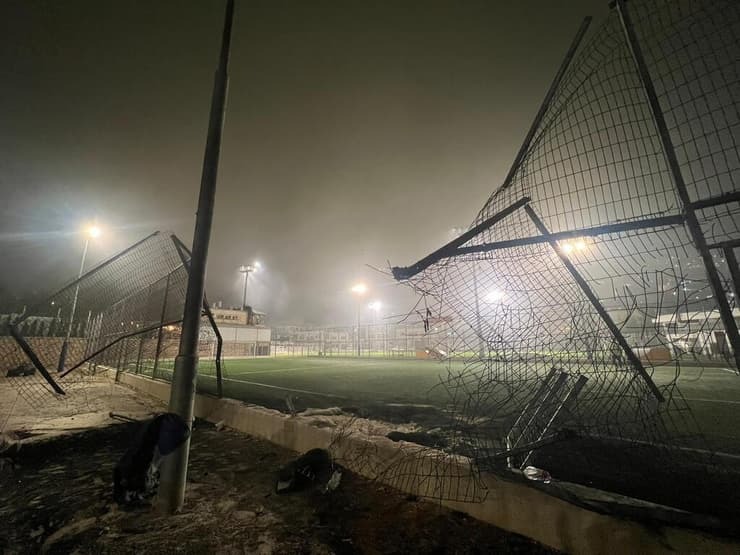On Saturday, July 27, a rocket strike in the Israeli-controlled Golan Heights killed at least 12 children and teenagers. Hezbollah spokesman Mohammed Afif told the Associated Press that the group “categorically denies carrying out an attack,” but Israeli Prime Minister Benjamin Netanyahu vowed that the group “will pay a heavy price for this attack, one that it has not paid so far.” The strike marks the deadliest attack on northern Israel since tit-for-tat fire began between the two actors following October 7.
Israeli Defense Forces responded early Sunday, July 28, with airstrikes on seven Hezbollah targets across Lebanon. Rising tensions have renewed fears of an all-out war, as Israeli leaders continue to decide what further responses might look like. Since the beginning of Hezbollah-Israel exchanges in October, 500 people, of whom around 90 are civilians, have been killed in Lebanon and 46 in Israel, including 22 citizens.
Regional sources report on the strike:
The New Arab reported the strike “hit a football field in Majdal Shams, a Druze town in the occupied Syrian Golan, killing children and teenagers who were playing there.” The Israeli military claimed the rocket was Iranian-made and fired by Hezbollah. However, Hezbollah, “which claimed multiple attacks on Israeli military positions during the day,” said they had “no connection” to the attack, and instead claimed Israel was responsible.
Daniel Hagari, spokesperson for the Israeli military, commented, “our intelligence is clear. Hezbollah is responsible for the killing of innocent children,” and “we will prepare for a response against Hezbollah…we will act,” shared Al Jazeera. After hearing of the attack, Netanyahu cut his trip to the United States short, and “directed that his return to Israel be brought forward as quickly as possible.”
Gulf News shared that Hezbollah has “evacuated positions in south and east Lebanon,” following Israel’s pledge to act in response to the Majdal Shams strike. They also highlighted The Syrian Observatory for Human Rights’ comments that “pro-Iran groups and Hezbollah-affiliated fighters have ‘evacuated their positions’ south of the capital and in the Damascus countryside…in anticipation of ‘potential Israeli airstrikes.’”
Since the attack, Israel has carried out numerous airstrikes in southern Lebanon, specifically in the towns of Houla and Markaba. However, The Times of Israel noted that “none of those strikes appeared to be Israel’s response to the deadly Hezbollah rocket attack on Majdal Shams, which is expected to be more significant.”
Asharq Al-Awsat described Western powers’ response to the situation, writing that “Washington stressed the importance of preventing any escalation in wake of the Golan attack,” and “London demanded that all sides show restraint.” Although the U.S. has joined Israel in condemning Hezbollah for the strike, Secretary of State Anthony Blinken called Israeli President Herzog on Monday pushing “ the importance of preventing escalation of the conflict.”
Abul Gheit, Secretary General of the Arab League released a statement on Monday, asserting the organization’s “full solidarity with Lebanon and condemned Israel’s threats against the country.” The statement read “the League has warned time and again…of the negative repercussions resulting from the continuation of the Israeli aggressive war on Gaza, and the risks of its expansion…into a state of major military confrontation and instability.” The Arab League has additionally asked for an investigation into the strike on Majdal Shams according to Al Ahram.
Arab News explained that many countries have urged their citizens to leave Lebanon, including Italy and Germany, and Saudi Arabia has asked its citizens to “adhere to the decision of not traveling to Lebanon.” Additionally, the Lufthansa Group suspended flights to Beirut until August 5 as a “precautionary measure,” while Royal Jordanian Airlines, Air France, and Transavia all suspended flights in some manner following the escalation.

